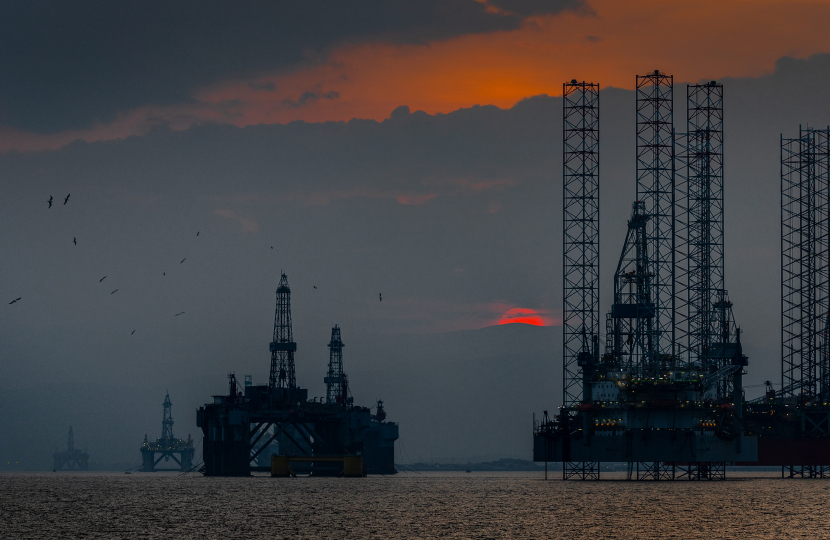
I know that many constituents share my concern on issues around climate change. As such I understand some of the concerns expressed over the decision to agree new oil and gas licences. However it is important that this is seen in full context and alongside other measures that are being introduced.
The wider context is that of energy security. We have all witnessed how Russia has manipulated and weaponised energy, disrupting supply and stalling growth in countries around the world. Now more than ever we need to increase our energy security to reduce our dependence on imports. This will not only help to protect our economy and is also important as, we are told, the carbon footprint of domestic gas production is around one-quarter of the carbon footprint of imported liquified natural gas. Further the independent Climate Change Committee predicts around a quarter of the UK’s energy demand will still be met by oil and gas when the UK reaches net zero in 2050.
Alongside the oil and gas licences the Government has also confirmed two more industrial Carbon Capture, Usage and Storage locations and thus the continued commitment to helping all parts of the United Kingdom decarbonise to reach net zero by 2050. This puts us on track to store 20-30 million tonnes of CO2 per annum by 2030, which is the equivalent to removing approximately 4-6 million cars from UK roads each year. It will also help realise the UK’s carbon storage potential, which, with an estimated 78 billion tonnes of theoretical CO2 storage capacity on the continental shelf is some of the largest in the world.
At the same time as this announcement from our own Government I was interested to read the comments of Dr Jim Skea, the newly appointed head of the UN’s Intergovernmental Panel on Climate Change (IPCC), about achieving target of limiting global warming to 1.5 degrees Celsius compared the pre-industrial era. He said "We should not despair and fall into a state of shock" if global temperatures were to increase by this amount. In another interview he explained his rationale saying "If you constantly communicate the message that we are all doomed to extinction, then that paralyzes people and prevents them from taking the necessary steps to get a grip on climate change," He clarified "The world won't end if it warms by more than 1.5 degrees. It will however be a more dangerous world."
I think this is a refreshing sort of comment. Dr Skea in no way underestimates the problem and the need to act. However some of the alarmist and extreme stance taking by some people either makes people think there is no point in trying or leads them to bury their heads in the sand ignoring the issues. An approach which demands people change and makes life difficult for them doesn’t encourage change. As Dr Skea says, "Every measure we take to weaken climate change helps." He added that measures were also becoming "ever more cost-effective."
Dr Skea believes that there are good reasons to be optimistic in the battle against climate change. His refreshing approach is pragmatic in that he hopes to adapt the IPCC to provide better and targeted advice to specific groups such as town planners, landowners and businesses: He recognises the need to address "real people and their real lives, not scientific abstractions.” This is echoed in the approach that the Government is taking. The Prime Minister has stated that the Government is keen to reach the target in a way that is proportionate, pragmatic and does not place unnecessary burdens to household budgets. This I believe is the right way to go. We need to bring everyone with us to make things possible.
Our individual actions make a difference, but it is also important to recognise that we need technological solutions such as carbon capture. Hence the recent Government announcement on this is good news. In the end it is not protestors who disrupt lives and disenfranchise people from the issues that will win change but the pragmatic approach of our leaders. These latest Government decisions are helping to secure the UK’s energy supply while creating a pathway for new and existing industries to invest in Britain and decarbonise to meet our net zero target. Win win.

